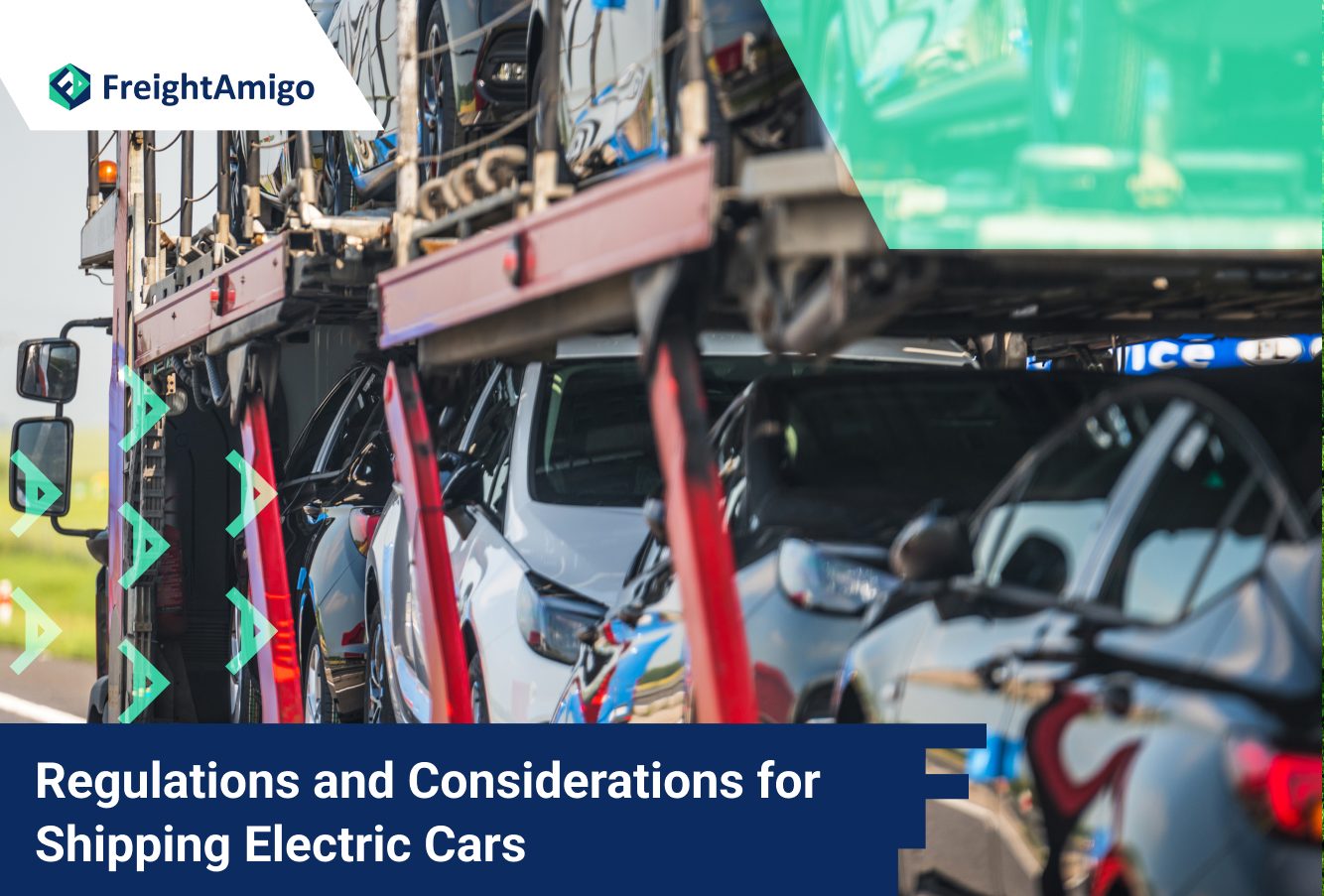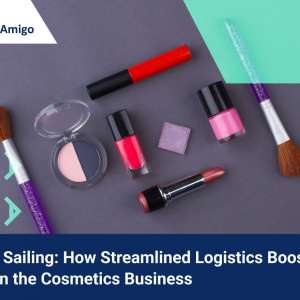In recent years, the rise in popularity of electric cars has led to an increased demand for shipping these vehicles across the globe. However, concerns over battery safety have prompted shipping companies to implement stricter regulations when it comes to transporting electric cars. In this article, we will explore the various regulations and considerations that need to be taken into account when shipping electric cars.
Author Name: Aurora Park– Marketing Analyst at FreightAmigo
Want to compare the best Express, Air Freight, Sea Freight, Rail Freight & Trucking rates so as to have better control on cost?
Overview of Shipping Regulations for Electric Cars
The shipping requirements for electric cars have undergone significant changes due to concerns over battery safety. Previously, electric cars could be shipped using Ro-Ro (Roll-on/Roll-off) or container services. However, most shipping companies have now revised their regulations, mandating that electric cars must be shipped in containers if they are destined for certain regions such as New Zealand, Australia, South East Asia, USA, and the Caribbean. It is important to note that these regulations apply only to full electric cars and not hybrid cars. Furthermore, the regulations do not affect cars being shipped to Africa.
To ensure compliance with the latest shipping requirements for electric and hybrid cars, it is advisable to check with the shipping company or a trusted transportation service provider before considering the purchase of an electric or hybrid car for export.
How Are Electric Cars Transported?
The process of shipping electric cars is similar to that of transporting conventional cars, with a few key differences. One important consideration is the battery of the electric car. The battery must be fully charged before shipping, and it is crucial to note that the weight of the battery can impact the overall cost of transportation.
Due to the potential risks associated with lithium-ion batteries, some shipping companies may take extra precautions when transporting electric cars. This can include acquiring special licensing and using specialized equipment designed to safely transport lithium-ion batteries. While the likelihood of a lithium-ion fire is low, damaged or overheated electric batteries can be as flammable as fossil fuels. Therefore, strict regulations govern the shipping of lithium-ion batteries to ensure safety.
Pros and Cons of Shipping Electric Cars
The decision to ship an electric car depends on various factors and personal preferences. However, there are several advantages to consider. Firstly, shipping your vehicle saves a significant amount of time compared to driving it yourself. Driving long distances can take days or even weeks, whereas shipping allows you to fly to your destination while your car is safely transported. This convenience can be a major benefit, especially for those with limited time or busy schedules.
Another advantage of shipping an electric car is that it minimizes wear and tear on the vehicle. Long-distance driving can negatively impact the battery and overall condition of the car, potentially leading to expensive repairs and reduced resale value. By opting for shipping, you can avoid these issues and preserve the value and performance of your electric car.
One of the most obvious benefits of shipping an electric car is the cost savings. You eliminate the need to spend money on gas during the long journey, avoid repair bills that may arise from wear and tear, and save your paid vacation time by not having to drive. Additionally, shipping multiple vehicles at the same time can lead to further cost savings.
Regulations Governing Shipment of Electric Vehicle (EV) Batteries in the U.S.
In the United States, the transportation of electric vehicle (EV) batteries is subject to specific regulations. The Suppliers Partnership for the Environment (SP) has collaborated with Call2Recycle, a leading battery collection and recycling company, to publish a guidance document titled “Regulations Governing Shipment of Electric Vehicle (EV) Batteries in the U.S.” This document serves as an informational resource for stakeholders involved in handling EV batteries at the end of their useful life.
The guidance document, produced by the SP’s Responsible Battery Work Group, outlines the current regulations and requirements that companies must understand and comply with when dealing with EV batteries. These regulations are categorized by battery chemistry (lithium-ion vs. nickel-metal hydride), state of health (end-of-life vs. damaged-defective-recalled), and mode of transportation (land/rail, air, or sea). Additionally, the document provides information on the types of shipping containers permitted for use.
It is important to note that while the guidance document provides valuable information, it is the responsibility of each company handling EV batteries to ensure compliance with all applicable laws and regulations.
Conclusion
In conclusion, the shipping regulations for electric cars have evolved due to concerns over battery safety. It is now mandatory for most shipping companies to transport electric cars in containers for certain regions, while hybrid cars are not affected by these regulations. When shipping electric cars, it is crucial to ensure that the battery is fully charged and that any necessary precautions are taken to transport lithium-ion batteries safely.
Shipping an electric car offers various advantages, including time savings, reduced wear and tear, and cost savings. However, it is essential to consider the specific regulations governing the transportation of EV batteries, such as those outlined by the Suppliers Partnership for the Environment in the United States.
By understanding and complying with these regulations, individuals and companies can ensure the safe and efficient transportation of electric cars, contributing to the continued growth and adoption of sustainable transportation solutions.
There are different options for cargo transportation. If you want to choose the most convenient and suitable solution, it is best to have the full support of logistics experts! If you are planning to ship goods overseas, please go to the FreightAmigo page for inquiries.
===
Read More:
【Ensuring Safety and Compliance】Packaging Electric Vehicle (EV) Cars for Transportation
Car Batteries Shipping: All You Need to Know
【Smooth and Secure】 Shipping Methods for Car Batteries
===
If you have any inquiries on logistics/supply chain, feel free to contact FreightAmigo now:
Phone : +852 28121686
WhatsApp: +852 27467829









































